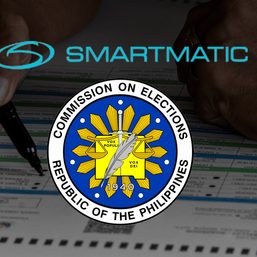SUMMARY
This is AI generated summarization, which may have errors. For context, always refer to the full article.
![[Newsstand] What we can expect from a Marcos Junior presidency](https://www.rappler.com/tachyon/2022/03/marcos-junior-presidency-march-2-2022-resized.jpeg)
In 2011, Ferdinand Marcos Jr. proposed changing Rizal Day from December 30 to June 19. He was a new senator, in his first year in office; he filed Senate Bill 2743 on June 18, the day before the country marked the 150th birth anniversary of the national hero. “The birthday of our national hero should always be a day of celebration of his life and of his great contribution to the country’s dependence from foreign domination,” he said.
As I had the chance to explain on the ABS-CBN News Channel that same week, that proposal to change Rizal Day from the date of his execution by Spanish colonial authorities in 1896 to the date of his birthday in 1861 was a mistake. December 30 is our oldest secular holiday – observed by the revolutionaries exiled in Hong Kong in 1897, the subject of a proclamation by Emilio Aguinaldo in 1898, constantly observed since then. The revolutionary generation, who were directly inspired by Rizal, saw his martyrdom as a defining moment in the shaping of our history. Six presidents – including Marcos Junior’s own father, on two occasions – took their oath of office on December 30, at a time when presidential inaugurations were integrated into Rizal Day rites.
Nothing came of the proposal; on hindsight, the bill seemed to have been filed as a belated attempt to extend (or to capitalize on) the significance of the Rizal sesquicentennial, the first to mark the 150th birth anniversary of the heroes (including Bonifacio, Mabini, Aguinaldo) born in the 1860s.
What does Marcos Junior’s willingness to change the date of Rizal Day imply for a second Marcos presidency? I have an idea.
In an interview with German TV and then in a public forum organized by DAKILA and the Filipino Documentary Society, I had the opportunity to present my view of the main characteristics of a Marcos Junior presidency. I said I expect two things to happen if the dictator’s son wins the election.
Concentrate power
I see Marcos Junior concentrating power in his office to authoritarian levels – without the need to impose military rule nationwide. He will do so, or to be more precise, he will be able to do so, because President Rodrigo Duterte has already done so. He need only follow Mr. Duterte’s rough-hewn template.
What the Duterte presidency showed us is that the constraints the post-Marcos Constitution placed on the presidency are not enough to prevent another authoritarian leader – if the President is brazen and shameless enough to wield the still-considerable powers of the office AGAINST other public officials or other government offices.
The Supreme Court became the Duterte Court long before the great majority of its members consisted of his appointees; directly and through proxies like Pantaleon Alvarez, the House speaker at the time, the administration issued unveiled warnings against the Court and organized the ouster of a Chief Justice. The President’s subservient super-majority in Congress demonized an opposition senator, harassed the Commission on Human Rights, rejected the franchise of the country’s largest TV network, and when he needed it inoculated him against impeachment through an obvious maneuver. The Philippine National Police became an instrument of mass extrajudicial killings.
There is so much more to the Duterte template, and Marcos Junior need only follow it. But does he have the intimidating reputation, the iron stomach for the repeated use of violence, that President Duterte has, and which gave credibility to the President’s threats?
Marcos Junior’s emphasis on “unity” as a campaign message, and his own reputation for fecklessness even when his father ruled the country, show a candidate very different from Duterte. It is possible that we will see a burst of spectacular violence at the start of a Marcos Junior presidency, to strike fear in both the public and in public officials. (Ping Lacson inaugurated his term as PNP chief in this way.)
But it is more likely that, to follow the Duterte template for authoritarian rule without need for martial law, Marcos Junior will take his father’s path: Use the law, and willing lawyers, as a weapon.
I would expect him to name Solicitor General Jose Calida as justice secretary, and place Calida clones as solicitor general, chief state prosecutor, Ombudsman (by 2024), etc.
Establish Marcos legacy
But the principal reason Marcos Junior is running for president is to complete the rehabilitation of his father’s reputation, and to establish the Marcos legacy as mainstream history.
When he first ran for the Senate in 1995, he lost; he did not yet have the benefit of a disinformation network on social media that helped him win in 2010. But even then, his campaign was built on the overarching message of “Taas Noo, Pilipino” (Hold Your Head High, Filipino). Even back in 1995, the attempt at national office was already an attempt to reclaim the Marcos family’s pride. His pre-unity campaign theme as presidential candidate, before he teamed up with Sara Duterte, was a play on his initials (the use of the initials themselves being part of the messaging plan to temporarily de-Marcosify him). BBM meant BaBangon Muli (We Will Rise Again). The appeal to national “recovery” is present (but also ironic, since he is running with the daughter of the current president), but the real message is that the Marcos family will recover its pride of place in Philippine history.
I fully expect a Marcos Junior presidency then to mount a vigorous campaign to establish the Marcos legacy, as it is presented on social media, especially on YouTube, as official policy. If he wins, he will preside over the 50th anniversary of his father’s imposition of Martial Law in September. He will use that historical occasion to explain his father’s vision (the “revolution from the center” that was meant to provide cover for world-record levels of plunder), to reclaim his father’s theme of “national thanksgiving,” to repeat the message (ironically emphasized by the famously undisciplined President Duterte) that “discipline” is a necessary element of democracy. (As the pioneering research of scholars like Cheryll Ruth Soriano has unearthed, that the Philippines under Marcos was supposed to be a genuine but disciplined democracy is one of the “aspirational tropes” or counter-myths that Marcos disinformation networks on YouTube propagate.)
As Marcos Junior showed in 2011, he is ready to change even the most hallowed date in our country’s revolutionary history for his own interpretation of history.
Once he is able to consolidate power, he will move to degrade and then finally drop the observance of February 25, the holiday marking the People Power revolution that ousted the Marcoses in 1986, and of August 21, the holiday commemorating the martyrdom of Ninoy Aquino in 1983, the key event that led to their ouster.
He will likely be able to do that in his first three years in office, in part by placing Marcos apologists and opportunistic mercenaries in charge of historical, cultural, and educational agencies. After that, he will have three more years to reshape the Philippines in his father’s bloated image. – Rappler.com
Veteran journalist John Nery is a columnist and editorial consultant of Rappler.
Add a comment
How does this make you feel?
![[WATCH] In The Public Square with John Nery: Preloaded elections?](https://www.rappler.com/tachyon/2023/04/In-the-Public-Square-LS-SQ.jpg?resize=257%2C257&crop=414px%2C0px%2C1080px%2C1080px)
![[Newspoint] 19 million reasons](https://www.rappler.com/tachyon/2022/12/Newspoint-19-million-reasons-December-31-2022.jpg?resize=257%2C257&crop=181px%2C0px%2C900px%2C900px)

![[OPINION] The long revolution: Voices from the ground](https://www.rappler.com/tachyon/2022/06/Long-revolution-June-30-2022.jpg?resize=257%2C257&crop=239px%2C0px%2C720px%2C720px)
![[OPINION] I was called a ‘terrorist supporter’ while observing the Philippine elections](https://www.rappler.com/tachyon/2022/06/RT-poster-blurred.jpeg?resize=257%2C257&crop_strategy=attention)


![[New School] Tama na kayo](https://www.rappler.com/tachyon/2024/02/new-school-tama-na-kayo-feb-6-2024.jpg?resize=257%2C257&crop=290px%2C0px%2C720px%2C720px)
![[Only IN Hollywood] After a thousand cuts, and so it begins for Ramona Diaz and Maria Ressa](https://www.rappler.com/tachyon/2024/02/Leni-18.jpg?resize=257%2C257&crop=262px%2C0px%2C720px%2C720px)

![[Free to disagree] How to be a cult leader or a demagogue president](https://www.rappler.com/tachyon/2024/04/TL-free-to-disagree.jpg?resize=257%2C257&crop_strategy=attention)
![[OPINION] Can Marcos survive a voters’ revolt in 2025?](https://www.rappler.com/tachyon/2024/04/tl-voters-revolt-04042024.jpg?resize=257%2C257&crop=251px%2C0px%2C720px%2C720px)
![[Edgewise] Quo vadis, Quiboloy?](https://www.rappler.com/tachyon/2024/03/quo-vadis-quiboloy-march-21-2024.jpg?resize=257%2C257&crop_strategy=attention)

![[OPINION] Sara Duterte: Will she do a Binay or a Robredo?](https://www.rappler.com/tachyon/2024/03/tl-sara-duterte-will-do-binay-or-robredo-March-15-2024.jpg?resize=257%2C257&crop_strategy=attention)
There are no comments yet. Add your comment to start the conversation.